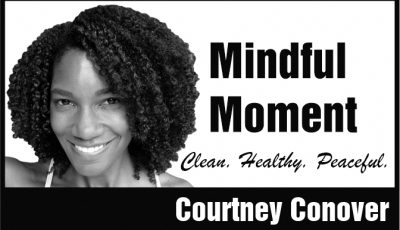Six tips for better sleep
 Honestly, tell the truth: Is the quality of your sleep satisfactory?
Honestly, tell the truth: Is the quality of your sleep satisfactory?
If you’re like most Americans, the answer is no.
According to the National Center for Biotechnology Information, forty percent of people aged 40 to 59 reported that they are getting less than recommended amounts of sleep. SleepAdvisor.org reports that 50 to 70 million people in the US suffer from one or several sleep disorders. And lack of sleep costs the United States over $411 billion annually, according to Fortune Magazine.
So, clearly, many of us are already coming up short in the sleep department.
And then along comes an additional roadblock—like the ending of Daylight Savings Time—to really screw things up. That’s right, folks: On Sunday, November 7, 2021, at 2 a.m. clocks are turned backward one hour.
On one hand, “falling back” early next month sounds amazing (Yay for and gaining an extra hour!). But this change can affect our circadian rhythm and potentially further disrupt sleep patterns.
The good news, however, is that even small, subtle changes to our nighttime routine can help us achieve the deep, restful sleep our bodies deserve.
Here are six tips that can lead to waking up feeling refreshed:
1. Establish a routine–and stick to it
We’re creatures of habit, so if we create a routine for ourselves, we will reset our internal clock to expect sleep after a certain time each night. One way of achieving this is by going to sleep and waking up at the same time each day. Another way is to find one calming activity that works for you and make that your pre-bed ritual (i.e., dim the lights, read—even if it’s just a page or two, or listen to soft music).
2. Don’t eat the wrong foods
What we eat and drink prior to bedtime can greatly affect our sleep. Of course, we already know to nix the caffeine. But do you also know to say no to alcohol, too? While an alcoholic drink in the evenings may help you fall asleep, studies have shown that it can prevent us from entering the deep stages of sleep that are vital to restoring our mind and body. And then there’s this: High-fat and high-protein foods (steak), as well as those containing high amounts of fiber (broccoli or cauliflower), shouldn’t be eaten too close to bedtime because these kinds of foods take longer for our bodies to digest, which can cause discomfort while we sleep.
It’s best to eat dinner earlier in the evening, and if we’re still hungry, have a light snack before bedtime.
Furthermore, spicy foods have been known to increase our metabolism and body temperature, making it harder to sleep. Some people even report that spicy foods seem to cause vivid or weird dreams or nightmares that disrupt their sleep.
3. Do eat the right ones
Many of us know from experience that few meals make us as sleepy as a warm Thanksgiving dinner. But other foods can contribute to good sleep, too. Bananas, for example, contain serotonin, a hormone that helps set us up for sleep. Berries and almonds are ripe with melatonin, which is known as the sleep hormone. Fatty fish like salmon may help us sleep due to its omega 3s and vitamin D content. And while turkey put tryptophan—the amino acid needed to produce sleep hormones—on the map, milk, yogurt, eggs, nuts, and seeds also contain tryptophan. And here’s a relatively unknown contender: Research also gives a nod to tart cherry juice for its inflammatory cytokines and melatonin—ingredients that help with both sleep time and sleep efficiency.
4. Tune out and unplug
Try to disconnect from the outside world. A lot of us are guilty of relying on electronics to wind down—like turning on the TV or tablet, or by scrolling through social media on our phone while in bed, but this can actually have the opposite effect. Turn off devices: the light they emit can activate our brain and cause our body to think it’s time to wake up instead of sleep.
5. Get regular exercise
Regular exercise, especially when done earlier in the day, can help us fall asleep faster and increase the amount of time we spend in the deep, restorative stages of sleep. The key is, though, to complete any moderate to vigorous exercise more than three to four hours before bed. If done too late in the evening, exercising can make falling asleep even more difficult.
6. Don’t stay up too late
It may be tempting to squeeze in one more hour-long episode of your favorite show on the night Daylight Savings Time ends, but don’t do it. According to Dr. Ilene Rosen who serves on the board of the American Academy of Sleep Medicine (AASM), “One of the biggest mistakes that people make is staying up later and thinking that they’re going to get an extra hour of sleep.” That internal clock of yours is likely to wake you up early that Sunday so don’t count on an extra hour.







